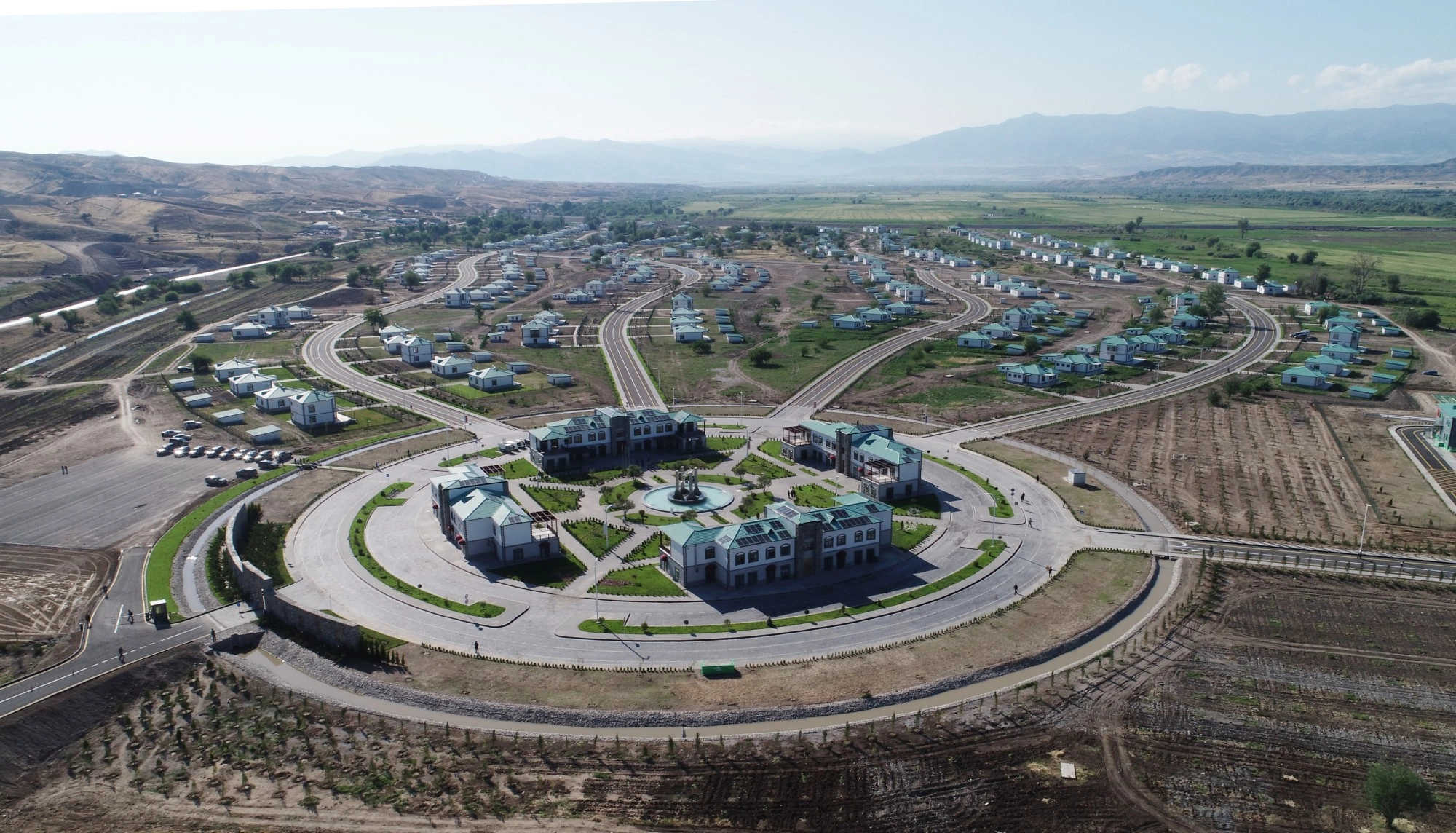2024 – Comprehensive Planning of Rural Settlements and Key Public Facilities
- Completed work: Geodetic, hydrogeological & geophysical surveys, planning and topographic measurements
- Location: Karabakh region (Aghdam, Jabrayil, Zangilan, Fuzuli, Khankendi, Khojaly, Khojavend, Shusha, Lachin)
- Year: 2024
2024 – Comprehensive Planning of Rural Settlements and Key Public Facilities
In 2024, Geoqazma LLC carried out a wide range of infrastructure and reconstruction projects across the Karabakh region. These efforts focused on rebuilding rural settlements and designing key public infrastructure. Comprehensive geodetic and geological studies were conducted to support the planning and construction of residential buildings, schools, kindergartens, commercial and service facilities, water supply and sewerage networks, transformer substations, and social spaces.
-
In Aghdam District, hydrogeological and geophysical studies were conducted for water supply and sewerage systems across nine villages: Garvand, Eyvazkhanbeyli, Gulluje, Salahli-Kangarli, Shotlanli, Namirli, Taghibeyli, Qiyasli, and Goytepe.
-
In Jabrayil District, engineering surveys were carried out in Horovlu and Karxulu villages to assess land suitability for residential houses, schools, kindergartens, markets, and service facilities. Additionally, site analysis was conducted for the planned "Ufug" Solar Power Plant near Soltanli village.
-
In Zangilan District, geological surveys and topographic measurements were performed for markets, trade centers, dormitories, and production facilities in the villages of Aghali and Alibeyli.
-
In Khankendi, Geoqazma assessed soil-bearing capacity and conducted site selection analyses for the construction of the Karabakh Regional Testing Laboratory and auxiliary infrastructure.
-
In Khojaly and Khojavend, geodetic surveys and technical evaluations were carried out for religious and cultural structures, including a mosque, a memorial complex, a tourism center, and an event hall.
-
In Shusha and Lachin, planning work for residential and hotel buildings considered architectural integration, terrain structure, and the preservation of historical identity.
These projects mark a critical step in re-establishing sustainable living conditions in Karabakh, enabling population return and strengthening regional development.


